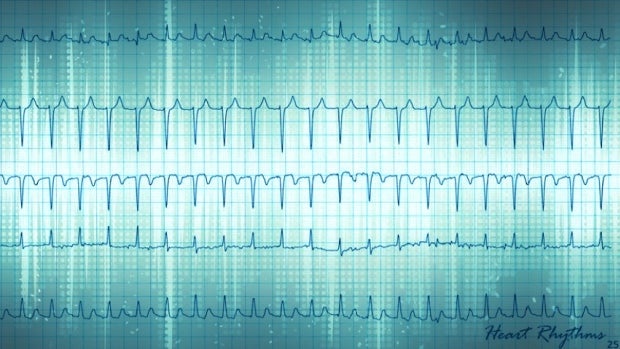
You may have grey hair and your report cards from school showed straight As, but it's your heart that can tell whether you are wise.
A new study from University of Waterloo psychology professor Igor Grossmann has found the fluctuations of your heartbeat can indicate whether you are more likely to use wise judgement in figuring out a problem.
"I'm specifically looking at how people reason about those issues, whether they recognize their knowledge is limited, whether they recognize that there are many ways to solve the problem, [if they] try to take perspectives of other people [rather] than just their own. Those types of reasoning strategies have been defined by philosophers as well as by psychologists as related to better judgement, wiser judgement," Grossman said.
"When we think about wisdom, it's not just about being able to efficiently solve problem, it's also about being a little bit more social, not just thinking about yourself. The idea of wisdom is not just that you try to be smart, it's about being considerate of other people and their perspectives."
Heart, mind connected
"There's this whole idea in eastern philosophy about the functioning of our body and how that may inform our well-being," he said when asked why he decided to study the heart and wisdom together.
However, Grossman noted that it was the physical beating, muscle and valve action of the heart and not a view of its romantic role in culture that was studied for a link to wisdom.
The study was conducted through the University of Western Sydney in Australia. Participants were separated into two groups and asked to consider political and social issues relevant to Australians. The participants used computers to answer questions. One group were asked to consider the issues in the first person – how they felt or thought about a certain situation. The second group was asked to think about the topics in the third person.
The participants shared their thoughts aloud and those thoughts were recorded by researchers.
The researchers also measured the participants' heart rates and recorded fluctuations. The participants were all healthy adults and anyone who may have been taking medication that could have affected their hearts were not included.
They found those who thought about an issue in the third person and who used wisdom to come to a conclusion had more varied heart rates.
The same was not true, however, for people who were asked to consider the issues from a first-person perspective. In that situation, there was no relationship between heart rate and wiser judgement.
Not always about 'you'
Grossman said his study, which was published in the journal Frontiers, is the first to show wise reasoning is not exclusively a function of the mind and cognitive ability.
In a post-study analysis, the researchers looked at the top 20 per cent of those in the third-person group who were wise and their heart rates varied.
"Top performers on wise reasoning indicated a significantly higher cardiac vagal tone than the remainder of the sample, irrespective of the condition these participants were in. This effect was true for both self-immersed and self-distanced participants," the researchers said in the study, indicating more work is needed in the area, including a study where the participants consider situations from multiple perspectives.
Until more work is done, Grossmann said, people who want to be wiser may want to consider problems they are faced with in the third person. Considering a problem as if it was someone else's and not your own, can help add that third-person perspective, he suggested.
"In many circumstances, that probably would help a little bit."
By Kate Bueckert, CBC News